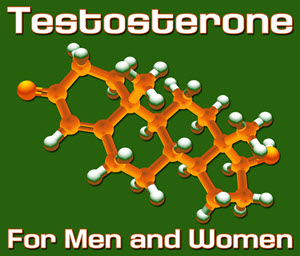Introduction to Hair Loss
Hair loss, or alopecia, is a common condition affecting millions of American men. While often perceived as a mere cosmetic issue, the reality is that hair loss can have profound psychological and social impacts. This article delves into the societal perceptions of hair loss and contrasts them with the medical understanding, aiming to provide a comprehensive view for American males.
Societal Perceptions of Hair Loss
In American society, a full head of hair is often associated with youth, vitality, and attractiveness. Media and advertising frequently reinforce these ideals, portraying baldness as something to be avoided or remedied. This societal pressure can lead to significant distress among men experiencing hair loss, with many feeling self-conscious or less confident about their appearance. The stigma attached to baldness can impact personal and professional relationships, sometimes leading to social withdrawal or the pursuit of costly and sometimes ineffective treatments.
Medical Reality of Hair Loss
From a medical perspective, hair loss is a natural process that can be influenced by genetics, hormones, and age. The most common form, androgenetic alopecia, or male pattern baldness, affects up to 80% of Caucasian men by the age of 70. This condition is primarily driven by genetics and the hormone dihydrotestosterone (DHT), which can cause hair follicles to shrink and eventually stop producing hair.
Other causes of hair loss include stress, medical conditions such as thyroid disease, and treatments like chemotherapy. Importantly, hair loss is not just a cosmetic issue but can be a symptom of underlying health problems that require medical attention.
Medical Treatments and Their Efficacy
Fortunately, there are several medical treatments available for hair loss. Medications like minoxidil and finasteride have been shown to slow hair loss and, in some cases, promote regrowth. Minoxidil, available over the counter, is applied topically, while finasteride, a prescription medication, works by inhibiting the production of DHT. Both have varying degrees of success, and their effectiveness can depend on the individual's specific condition and adherence to treatment.
For those seeking more permanent solutions, hair transplant surgery is an option. This procedure involves moving hair follicles from a donor area to the balding area, offering a more lasting solution to hair loss. However, it is important for men to have realistic expectations and understand that results can vary.
Psychological Impact and Coping Strategies
The psychological impact of hair loss should not be underestimated. Many men experience a decline in self-esteem and may benefit from psychological support or counseling. Coping strategies can include embracing baldness as a natural part of aging, using hairpieces or wigs, or simply changing hairstyles to minimize the appearance of thinning.
Conclusion: Bridging the Gap
Understanding the gap between societal perceptions and the medical reality of hair loss is crucial for American men. While society may place undue emphasis on a full head of hair, the medical community recognizes hair loss as a common and often treatable condition. By fostering a more informed and accepting view of hair loss, we can help men navigate this challenge with confidence and dignity. Whether through medical intervention or psychological support, the key is to address both the physical and emotional aspects of hair loss, ensuring a holistic approach to this widespread issue.
Contact Us Today For A Free Consultation

- Decoding Follicle Fallout: An Exploration of Hair Loss as a Significant Medical Concern [Last Updated On: March 2nd, 2025] [Originally Added On: March 2nd, 2025]
- Exploring the Link Between Thyroid Disorders and Hair Loss: Mechanisms, Diagnosis, and Treatment Options [Last Updated On: March 3rd, 2025] [Originally Added On: March 3rd, 2025]
- Exploring Surgical Solutions for Male Hair Loss: Techniques and Benefits [Last Updated On: March 4th, 2025] [Originally Added On: March 4th, 2025]
- Comprehensive Guide to Male Hair Loss: Causes, Treatments, and Psychological Effects [Last Updated On: March 5th, 2025] [Originally Added On: March 5th, 2025]
- Understanding Pediatric Hair Loss: Causes, Impact, and Management Strategies [Last Updated On: March 6th, 2025] [Originally Added On: March 6th, 2025]
- Exploring OTC Hair Loss Treatments for Men: Minoxidil, Herbal Supplements, and Efficacy Insights [Last Updated On: March 7th, 2025] [Originally Added On: March 7th, 2025]
- Holistic Approaches for Managing Hair Loss in American Men: Natural Solutions Explored [Last Updated On: March 8th, 2025] [Originally Added On: March 8th, 2025]
- Unveiling the Silent Culprit: The Connection Between Scalp Infections and Male Hair Loss in America [Last Updated On: March 9th, 2025] [Originally Added On: March 9th, 2025]
- Genetics and Hormones: Unraveling Male Pattern Baldness for Effective Treatment and Prevention [Last Updated On: March 9th, 2025] [Originally Added On: March 9th, 2025]
- Exploring Medical Wigs: A Vital Solution for Hair Loss in American Males [Last Updated On: March 10th, 2025] [Originally Added On: March 10th, 2025]
- Unraveling the Link Between Stress and Hair Loss in American Males: A Comprehensive Medical Insight [Last Updated On: March 12th, 2025] [Originally Added On: March 12th, 2025]
- Hormonal Influences on Male Hair Loss: Genetics, Androgens, and Treatment Strategies [Last Updated On: March 13th, 2025] [Originally Added On: March 13th, 2025]
- Unveiling the Truth: A Comprehensive Guide to Hair Loss in American Males [Last Updated On: March 15th, 2025] [Originally Added On: March 15th, 2025]
- Chemotherapy-Induced Hair Loss in American Males: Understanding, Coping, and Recovery Strategies [Last Updated On: March 16th, 2025] [Originally Added On: March 16th, 2025]
- Allergies and Hair Loss in American Males: Understanding the Indirect Connection [Last Updated On: March 17th, 2025] [Originally Added On: March 17th, 2025]
- Understanding Hair Loss in American Men: Causes, Treatments, and Future Hope [Last Updated On: March 17th, 2025] [Originally Added On: March 17th, 2025]
- Hair Loss in American Men: Psychological Impacts and Coping Strategies [Last Updated On: March 18th, 2025] [Originally Added On: March 18th, 2025]
- Monogenic Hair Loss in American Males: Genetics, Diagnosis, and Future Therapies [Last Updated On: March 18th, 2025] [Originally Added On: March 18th, 2025]
- Topical Treatments for Hair Loss: Minoxidil, Finasteride, and Emerging Therapies [Last Updated On: March 19th, 2025] [Originally Added On: March 19th, 2025]
- Alopecia Universalis: Causes, Symptoms, and Treatment Options for American Males [Last Updated On: March 19th, 2025] [Originally Added On: March 19th, 2025]
- 14 FDA-Approved Medications and Therapies for Treating Hair Loss in American Males [Last Updated On: March 20th, 2025] [Originally Added On: March 20th, 2025]
- Understanding Hair Loss: Genetics, Hormones, Age, and Management Strategies for Men [Last Updated On: March 20th, 2025] [Originally Added On: March 20th, 2025]
- Diabetes and Hair Loss in American Males: Causes, Types, and Management Strategies [Last Updated On: March 20th, 2025] [Originally Added On: March 20th, 2025]
- Understanding and Treating Hair Loss in American Men: Causes and Solutions [Last Updated On: March 21st, 2025] [Originally Added On: March 21st, 2025]
- Male Hair Loss: Understanding Causes, Impacts, and Management Strategies [Last Updated On: March 21st, 2025] [Originally Added On: March 21st, 2025]
- Telogen Effluvium in American Males: Causes, Symptoms, and Management Strategies [Last Updated On: March 21st, 2025] [Originally Added On: March 21st, 2025]
- Drug-Induced Hair Loss in American Males: Causes, Medications, and Management Strategies [Last Updated On: March 21st, 2025] [Originally Added On: March 21st, 2025]
- Antidepressants and Hair Loss in American Males: Mechanisms, Management, and Support [Last Updated On: March 22nd, 2025] [Originally Added On: March 22nd, 2025]
- Innovative Hair Loss Solutions for American Men: Technology, Biology, and Lifestyle [Last Updated On: March 22nd, 2025] [Originally Added On: March 22nd, 2025]
- Hair Loss in American Males Linked to Increased Heart Disease Risk: Insights and Management [Last Updated On: March 22nd, 2025] [Originally Added On: March 22nd, 2025]
- Hair Loss in American Males: Causes, Surgical Options, and Future Treatments [Last Updated On: March 23rd, 2025] [Originally Added On: March 23rd, 2025]
- Hair Loss in Young Males: Causes, Impacts, and Treatment Options [Last Updated On: March 23rd, 2025] [Originally Added On: March 23rd, 2025]
- Hair Cloning: A Revolutionary Approach to Permanent Hair Loss Solutions [Last Updated On: March 23rd, 2025] [Originally Added On: March 23rd, 2025]
- LLLT: A Non-Invasive Solution for Male Pattern Baldness in American Men [Last Updated On: March 23rd, 2025] [Originally Added On: March 23rd, 2025]
- Hair Loss in American Males Linked to PCOS: Hormonal Imbalances Explored [Last Updated On: March 24th, 2025] [Originally Added On: March 24th, 2025]
- Autoimmune Disorders and Hair Loss in American Males: Causes, Impacts, and Treatments [Last Updated On: March 24th, 2025] [Originally Added On: March 24th, 2025]
- Steroids and Hair Loss: Understanding Risks and Mitigation Strategies for American Men [Last Updated On: March 24th, 2025] [Originally Added On: March 24th, 2025]
- Revolutionizing Hair Loss Treatment: Stem Cells, Gene Therapy, and AI Innovations [Last Updated On: March 24th, 2025] [Originally Added On: March 24th, 2025]
- Medical Hair Loss in Men: Causes, Effects, and Management Strategies [Last Updated On: March 24th, 2025] [Originally Added On: March 24th, 2025]
- Post-COVID Hair Loss in American Males: Causes, Impacts, and Management Strategies [Last Updated On: March 24th, 2025] [Originally Added On: March 24th, 2025]
- Hair Follicle Miniaturization: Causes, Signs, and Treatments for American Males [Last Updated On: March 25th, 2025] [Originally Added On: March 25th, 2025]
- AI Revolutionizes Male Pattern Baldness Treatment and Diagnosis [Last Updated On: March 25th, 2025] [Originally Added On: March 25th, 2025]
- Hair Extensions and Permanent Hair Loss: Risks and Safe Practices for American Males [Last Updated On: March 25th, 2025] [Originally Added On: March 25th, 2025]
- Understanding and Addressing Receding Hairlines in American Men: Causes and Solutions [Last Updated On: March 25th, 2025] [Originally Added On: March 25th, 2025]
- Male Pattern Baldness: Causes, Treatments, and Future Hope [Last Updated On: March 25th, 2025] [Originally Added On: March 25th, 2025]
- Hair Loss Reversed: Success Stories and Innovative Treatments for American Men [Last Updated On: March 25th, 2025] [Originally Added On: March 25th, 2025]
- Vitamin Deficiencies and Hair Loss in American Males: Causes, Prevention, and Treatment [Last Updated On: March 25th, 2025] [Originally Added On: March 25th, 2025]
- Understanding Hair Loss in Men: Causes, Diagnosis, and Advanced Technologies [Last Updated On: March 26th, 2025] [Originally Added On: March 26th, 2025]
- Shock Loss After Hair Transplants: Causes, Timeline, and Management for American Males [Last Updated On: March 26th, 2025] [Originally Added On: March 26th, 2025]
- Thyroid Disorders and Hair Loss in American Males: Causes, Diagnosis, and Treatment [Last Updated On: March 26th, 2025] [Originally Added On: March 26th, 2025]
- Androgenetic Alopecia: Advances in Diagnosis, Treatment, and Psychological Support for American Men [Last Updated On: March 26th, 2025] [Originally Added On: March 26th, 2025]
- Hair Dyes and Hair Loss: Risks, Studies, and Safety Tips for American Men [Last Updated On: March 26th, 2025] [Originally Added On: March 26th, 2025]
- Aromatherapy for Hair Loss in American Males: Benefits and Practical Applications [Last Updated On: March 26th, 2025] [Originally Added On: March 26th, 2025]
- Chemotherapy-Induced Hair Loss in American Males: Causes, Strategies, and Future Hope [Last Updated On: March 26th, 2025] [Originally Added On: March 26th, 2025]
- Anabolic Steroids and Hair Loss: Mechanisms, Prevalence, and Management in American Males [Last Updated On: March 26th, 2025] [Originally Added On: March 26th, 2025]
- Managing Hair Loss in American Males: Causes, Diagnosis, and Treatment Strategies [Last Updated On: March 26th, 2025] [Originally Added On: March 26th, 2025]
- Immune System Disorders and Hair Loss in American Males: Causes, Mechanisms, and Management [Last Updated On: March 27th, 2025] [Originally Added On: March 27th, 2025]
- PRP Therapy: A Promising Solution for Hair Loss in American Men [Last Updated On: March 27th, 2025] [Originally Added On: March 27th, 2025]
- Scalp Psoriasis and Hair Loss in American Males: Understanding and Managing the Impact [Last Updated On: March 27th, 2025] [Originally Added On: March 27th, 2025]
- Anemia and Hair Loss in American Men: Causes, Diagnosis, and Management Strategies [Last Updated On: March 28th, 2025] [Originally Added On: March 28th, 2025]
- Postpartum Hair Loss in American Males: Causes, Symptoms, and Management Strategies [Last Updated On: March 28th, 2025] [Originally Added On: March 28th, 2025]
- Rogaine: Benefits, Risks, and Considerations for American Men's Hair Loss Treatment [Last Updated On: March 28th, 2025] [Originally Added On: March 28th, 2025]
- High Blood Pressure and Hair Loss: Managing Dual Health Concerns in American Males [Last Updated On: March 30th, 2025] [Originally Added On: March 30th, 2025]
- Trichotillomania in American Males: Challenges, Symptoms, and Treatment Strategies [Last Updated On: March 30th, 2025] [Originally Added On: March 30th, 2025]
- Hair Loss in American Men: Impacts, Coping, and Holistic Support Strategies [Last Updated On: April 1st, 2025] [Originally Added On: April 1st, 2025]
- Andropause and Hair Loss: Understanding Causes and Exploring Treatment Options [Last Updated On: April 2nd, 2025] [Originally Added On: April 2nd, 2025]
- Efficacy of Hair Loss Shampoos: Ingredients, Science, and Real-World Results for American Men [Last Updated On: April 5th, 2025] [Originally Added On: April 5th, 2025]
- Stem Cell Therapy: A Breakthrough in Treating Male Pattern Baldness [Last Updated On: April 5th, 2025] [Originally Added On: April 5th, 2025]
- Hair Breakage vs. Loss: Understanding and Managing Hair Health in American Males [Last Updated On: April 6th, 2025] [Originally Added On: April 6th, 2025]
- Understanding CCCA: Symptoms, Diagnosis, and Management for American Males [Last Updated On: April 6th, 2025] [Originally Added On: April 6th, 2025]
- Bariatric Surgery in American Males: Understanding and Managing Post-Surgery Hair Loss [Last Updated On: April 6th, 2025] [Originally Added On: April 6th, 2025]
- Hair Loss and Mental Health: A Holistic Approach for American Males [Last Updated On: April 6th, 2025] [Originally Added On: April 6th, 2025]
- Gastrointestinal Health and Hair Loss: Exploring the Link in American Males [Last Updated On: April 8th, 2025] [Originally Added On: April 8th, 2025]
- Minoxidil for American Men: Usage, Benefits, and Holistic Hair Care Strategies [Last Updated On: April 9th, 2025] [Originally Added On: April 9th, 2025]
- Smoking's Impact on Hair Loss in American Men: Medical Insights and Solutions [Last Updated On: April 9th, 2025] [Originally Added On: April 9th, 2025]
- Protein Shakes and Hair Loss: Risks and Mitigation Strategies for American Men [Last Updated On: April 10th, 2025] [Originally Added On: April 10th, 2025]
- Weight Loss Diets and Hair Loss: Insights for American Males [Last Updated On: April 11th, 2025] [Originally Added On: April 11th, 2025]
- Lifestyle Modifications to Combat Hair Loss in American Males [Last Updated On: April 12th, 2025] [Originally Added On: April 12th, 2025]
- Nutrition's Role in Combating Hair Loss for American Men: Key Dietary Strategies [Last Updated On: April 13th, 2025] [Originally Added On: April 13th, 2025]
- Iron Supplements: A Potential Remedy for Hair Loss in American Males [Last Updated On: April 15th, 2025] [Originally Added On: April 15th, 2025]
Word Count: 533





















